
Gut Health and Skin Connection
Let’s unlock the secret of the Gut-Skin connection! Here’s the scoop: glowing skin isn’t solely about fancy serums or high-end facials. In fact, it all starts with your gut. That’s right—maintaining a healthy gut has been crucial for improving my skin and simplifying my skincare routine. The connection between gut and skin health is more powerful than you might think.
Think of your gut as the soil in a garden. Just as plants need fertile soil to thrive, your skin relies on a well-balanced gut. A healthy gut supports hormone balance, nutrient absorption, and toxin elimination—all of which are essential for radiant skin. Did you know about 70 to 80 percent of your immune system is in your gut? This significant Gut-Skin axis means a balanced gut can lead to clearer skin and reduce issues like acne and rosacea.
Small lifestyle tweaks can make a big difference. For instance, I’ve boosted my gut’s health by cutting down on processed foods and increasing my fiber intake. This, in turn, has had a remarkable impact on my skin, demonstrating the profound effects of the Gut-Skin relationship.
Ready to transform your skin by focusing on your gut? Let’s explore how these changes can make a noticeable difference.
Key Takeaways
- 70 to 80 percent of the immune system is located in the gut, affecting skin health.
- Maintaining a balanced microbiome is crucial for both gut health and skin vitality.
- Probiotics from foods like yogurt and kimchi support gut health.
- Consuming fiber-rich foods promotes healthy gut bacteria and timely digestion.
- Stress can negatively impact gut health, which in turn affects skin conditions.
The Powerful Gut Health and Skin Connection for Radiant Skin
I’m continually amazed by the profound connection between gut health and skin vitality. My gut does much more than handle digestion—it houses about 70% of my immune system. This underscores how crucial good digestive health is for overall well-being and achieving radiant skin, reinforcing the importance of the Gut-Skin connection.
Exploring the Gut-Skin Axis: Why Your Gut Health Impacts Your Skin
The Gut-Skin axis concept reveals how closely my gut health is linked to my skin’s condition. When inflammation takes hold in the gut, it often manifests on the skin, potentially leading to issues such as rosacea or inflammatory bowel diseases. This interplay between the gut and skin fascinates me, underscoring the significance of maintaining a healthy digestive system.
Skin conditions like eczema, acne, and rosacea are often associated with gut health. This connection makes me reflect on how my diet can impact my skin. By focusing on gut health, I’m aiming for better digestion and clearer, more vibrant skin, highlighting the Gut-Skin relationship.
Nourish Your Gut, Transform Your Skin: The Gut Health and Skin Connection
Nutrition plays a crucial role in maintaining a healthy gut, which directly impacts the radiance of your skin. For instance, incorporating foods rich in prebiotics and probiotics can make a significant difference. These foods help nurture the beneficial bacteria in your gut, which in turn supports the health of your skin, further strengthening the Gut-Skin connection.
Moreover, fiber-rich foods are essential. They produce short-chain fatty acids essential for maintaining gut health, enhancing skin vitality, and bolstering the immune system. Since revamping my diet to include more nourishing foods, I’ve noticed a remarkable improvement in my skin’s appearance. The new glow is not just a superficial change—it’s a reflection of a healthier gut and overall well-being.
| Food Group | Benefits for Gut Health | Effects on Skin |
|---|---|---|
| Probiotic Foods (e.g., yogurt, kefir) | Promote good bacteria | Can reduce acne severity |
| Prebiotic Foods (e.g., garlic, bananas) | Feed healthy gut bacteria | Supports glowing skin tone |
| Fiber-rich foods (e.g., whole grains, legumes) | Enhance digestion & nutrient absorption | Helps improve skin texture |
| Anti-inflammatory foods (e.g., berries, green tea) | Reduce gut inflammation | It may alleviate skin redness |
Unlocking the Gut Health and Skin Connection: Achieve a Glowing Complexion
Understanding the connection between gut health and skin is crucial for achieving a radiant look. In fact, the gut microbiome significantly influences our skin’s condition. When the gut is balanced, it often leads to healthier skin, as I’ve noticed, demonstrating the importance of the Gut-Skin axis.
How a Balanced Gut Microbiome Enhances Skin Vitality
Research shows that gut health directly affects skin health. For instance, skin issues can often arise from gastrointestinal disorders, which necessitates paying close attention to gut bacteria. Specifically, people with acne or rosacea frequently face gut health challenges. Interestingly, acne sufferers are ten times more likely to have Small Intestinal Bacterial Overgrowth (SIBO), complicating their skin problems further. This highlights the intricate Gut-Skin relationship.
Signs of Imbalance: What Your Skin and Gut Can Tell You
Additionally, our skin reflects our gut health. Therefore, signs like breakouts, rashes, or dullness can indicate underlying gut issues. Around 34% of individuals with Irritable Bowel Syndrome (IBS) also report experiencing skin problems. These indicators prompt me to assess my diet, digestive health, and skincare routine, emphasizing the Gut-Skin connection.
The Impact of Gut Inflammation on Skin Health
Fortunately, improving gut health can lead to more beautiful skin. For example, consuming foods rich in probiotics, such as kimchi and sauerkraut, can be beneficial. Conversely, a diet high in sugar can disrupt gut balance, worsening skin issues. Overall, focusing on gut health has significantly enhanced the clarity and vibrancy of my skin, thanks to the Gut-Skin relationship.
| Skin Condition | Associated Gut Issue | Impact Factor |
|---|---|---|
| Acne | SIBO (Small Intestinal Bacterial Overgrowth) | 10 times more likely |
| Rosacea | Poor Gut Health | 13 times more likely |
| IBS | Skin Manifestations | 34% experience this |
| Inflamed Skin | Gut Inflammation | Contributes to exacerbation |
The Gut-Brain-Skin Axis: Managing Stress for Healthy Skin
I discovered how crucial probiotics are for achieving glowing skin. Not only do these beneficial bacteria aid digestion, but they also play a significant role in enhancing skin health. By balancing the gut microbiome, probiotics help reduce inflammation and address various skin issues, further illustrating the Gut-Skin connection. Let’s delve into probiotics, explore some of my favorite probiotic-rich foods, and share tips for selecting the right probiotics for optimal skin benefits.
What Are Probiotics and Their Benefits?
Probiotics are beneficial live microbes that maintain gut health and combat skin issues such as acne, eczema, and psoriasis. Strains like Lactobacillus casei and Bifidobacterium animalis lactis are particularly effective in reducing skin inflammation and soothing itchiness. Ultimately, a balanced gut translates to healthier, happier skin across various conditions, showcasing the Gut-Skin axis.
Foods Rich in Probiotics
I always make sure to include foods rich in probiotics in my diet. Here are some easy options you can incorporate:
- Yogurt: A top choice for its high probiotic content.
- Kefir: A fermented drink brimming with beneficial bacteria.
- Kombucha: A fizzy favorite of mine that aids in gut health.
- Kimchi: A Korean dish packed with probiotics and flavor.
- Sauerkraut: Adds crunch and beneficial bacteria to meals.
- Natto: Fermented soybeans from Japan are known for their high nutritional value.
Incorporating these probiotic-rich foods has significantly boosted both my gut and skin health. They’re definitely worth trying to strengthen the Gut-Skin relationship.
Choosing the Right Probiotic Supplement for Gut and Skin Health
Choosing the right probiotic supplement can be challenging due to the wide variety available. Selecting supplements containing multiple strains is crucial, as different bacteria offer unique benefits. For example, Lactobacillus paracasei is particularly effective in reducing acne. I focus on supplements that enhance skin health by promoting a balanced gut microbiome, which is key to the Gut-Skin axis.
Digestive Health and Skin: The Symbiotic Relationship
Exploring the link between digestive health and skin is truly fascinating. Indeed, it’s remarkable to see how our gut health directly impacts our complexion. By understanding this connection, we can achieve glowing skin that authentically reflects our internal well-being, demonstrating the importance of the Gut-Skin connection.
The Importance of Nutrient Absorption for Gut and Skin Health
Nutrient absorption is crucial for maintaining healthy skin and optimal digestion. Essential vitamins like A, C, and E, along with zinc, play a vital role in keeping our skin smooth and radiant. Additionally, a well-functioning gut ensures that these nutrients are effectively absorbed. As a result, this helps our skin stay fresh, combats signs of aging, and helps reduce acne, reinforcing the Gut-Skin axis.
How Hormones Affect Both Gut and Skin Health
Hormones play a significant role in both our gut and skin health. For instance, changes in hormone levels can lead to breakouts and dull skin. However, a balanced gut can help regulate these hormones effectively. This balance supports healthier skin by enhancing nutrient absorption, demonstrating the Gut-Skin relationship.
Moreover, stress and diet also impact our hormones and skin. Thus, maintaining a healthy lifestyle is crucial for optimal gut and skin health.

| Aspect | Digestive Health | Skin Health |
|---|---|---|
| Nutrient Utilization | Enhances absorption of vitamins and minerals | Promotes skin regeneration and repair |
| Hormonal Balance | Regulates hormone levels | Affects skin clarity and radiance |
| Microbiome Diversity | Supports gut immunity and health | Influences skin microbiota and conditions |
| Inflammation | Reduces gut inflammation | Minimizes skin flare-ups and irritations |
In summary, gut and skin health are closely linked. The gut-skin connection enhances overall health by fostering nutrient absorption and managing hormones.
Gut Microbiome and Skin Health
The connection between gut health and skin health is both complex and fascinating. Firstly, a well-balanced gut, rich in diverse bacteria, is crucial in enhancing skin appearance. When our gut is functioning optimally, it not only aids in digestion but also contributes to a healthier, more radiant complexion. Therefore, maintaining gut health is essential for glowing skin and overall well-being, emphasizing the Gut-Skin axis.
The Role of Diversity in Gut Bacteria
Having a variety of bacteria in the gut is essential for maintaining overall gut health. This diversity helps balance our immune system, which benefits our skin. Moreover, research has consistently shown a strong link between the bacteria in our gut and the condition of our skin. Specifically, the types of bacteria present influence how effectively our immune system functions. For instance, diverse gut bacteria produce substances that combat inflammation, ultimately leading to healthier and more resilient skin, further demonstrating the Gut-Skin relationship.
Gut Inflammation and Its Effects on the Skin
On the flip side, inflammation in the gut can have detrimental effects on the skin. For example, conditions like psoriasis, eczema, and rosacea are often linked to underlying gut inflammation. When inflammation disrupts the gut’s natural balance, it can lead to various skin issues. Therefore, maintaining a healthy gut is crucial for addressing and improving skin problems. This underscores the importance of a diverse gut microbiome in supporting overall skin health.
| Skin Condition | Related Gut Condition | Key Microbial Influence |
|---|---|---|
| Psoriasis | Gut dysbiosis | Altered immune response |
| Eczema | Increased gastrointestinal permeability | Microbial imbalance |
| Rosacea | Chronic gut inflammation | Overgrowth of harmful bacteria |
| Food Group | Benefits |
|---|---|
| Prebiotics (e.g., garlic, onions) | Support beneficial gut bacteria |
| Omega-3 Fatty Acids (e.g., salmon, walnuts) | Reduce inflammation |
| Fermented Foods (e.g., yogurt, kimchi) | Enhance gut microbiome diversity |
| High-fiber foods (e.g., fruits, vegetables) | Aid in digestion and regularity |
| Polyphenol-rich foods (e.g., berries, green tea) | Boost anti-inflammatory responses |
FAQ
How can I improve my gut health for better skin?
For better skin, eat more foods with prebiotics and probiotics. Yogurt, kefir, fruits, veggies, and whole grains help. They feed your gut bacteria and support a healthy gut for glowing skin.
What are the signs of an unhealthy gut affecting my skin?
If you have frequent breakouts or a dull complexion, listen up. Conditions like eczema and rosacea can also be red flags. These issues suggest your gut might need some love and care.
Which probiotics are best for skin health?
Seek probiotics with Lactobacillus and Bifidobacterium. These reduce inflammation and better your skin. Adding sauerkraut and kimchi to your diet boosts skin-friendly bacteria.
How does stress impact gut and skin health?
Stress harms your gut and skin by upsetting the bacterial balance. This can result in digestive problems and skin issues. Fight stress with meditation and exercise for better gut health and skin.
Can hydration affect my skin’s appearance?
Yes, drinking enough water is key for healthy skin. It helps with nutrient absorption in the gut, improving skin health. Staying hydrated makes your skin look healthy and radiant.
What foods should I avoid for a healthier gut and skin?
Cut back on sugar, processed foods, and too much alcohol. These can mess up your gut and affect your skin. Choose nutrient-rich whole foods for a healthier gut and beautiful skin.
Is there a specific diet I should follow for gut health?
A diet filled with various fruits, veggies, lean proteins, and healthy fats is definitely great. Don’t forget anti-inflammatory foods like omega-3s. This diet is good for your gut and makes your skin shine.
Source Links
Gut-Skin Connection Basics
- The Gut-Skin Glow Connection
- The Connection Between Gut Health and Glowing Skin
- Precision Biology- Key to Glowing Skin Health
- The Gut-Skin Connection: How to Glow From Inside Out
- The Importance of Gut Health for Radiant Skin | Deanna Minich
- The Power of The Gut-Skin Connection
- The Gut-Skin Connection Book | Bestow Beauty NZ | Heal Your Gut, Transform Your Skin | Bestow Beauty
- A Healthy Gut Might Be the Secret to Glowing Skin
Scientific Insights and Studies
- Gut–Skin Axis: Current Knowledge of the Interrelationship between Microbial Dysbiosis and Skin Conditions
- Impact of gut microbiome on skin health: gut-skin axis observed through the lenses of therapeutics and skin diseases
- The Skin and Gut Microbiome and Its Role in Common Dermatologic Conditions
- Gut–Skin Axis: Unravelling the Connection between the Gut Microbiome and Psoriasis
- How Does the Gut-Skin Axis Work? – Dr. Michael Ruscio, DC
- The Role of Probiotics in Skin Health and Related Gut–Skin Axis: A Review
Practical Tips and Guides
- Gut Check for Glowing Skin: the Gut-Skin Connection
- Exploring the Gut-Skin Connection: SINY Dermatology: Dermatology
- Gut Health and Skin: Understanding The Gut-Skin Connection
- Can Gut Health Improve Skin Health?
- How to Improve and Reset Gut Health
- You’ve heard of the gut-brain connection, but what about the gut-skin connection?






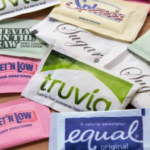









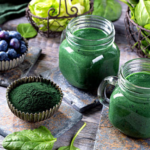
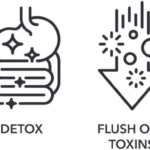




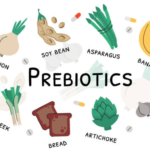
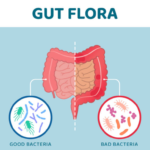
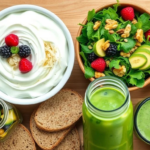






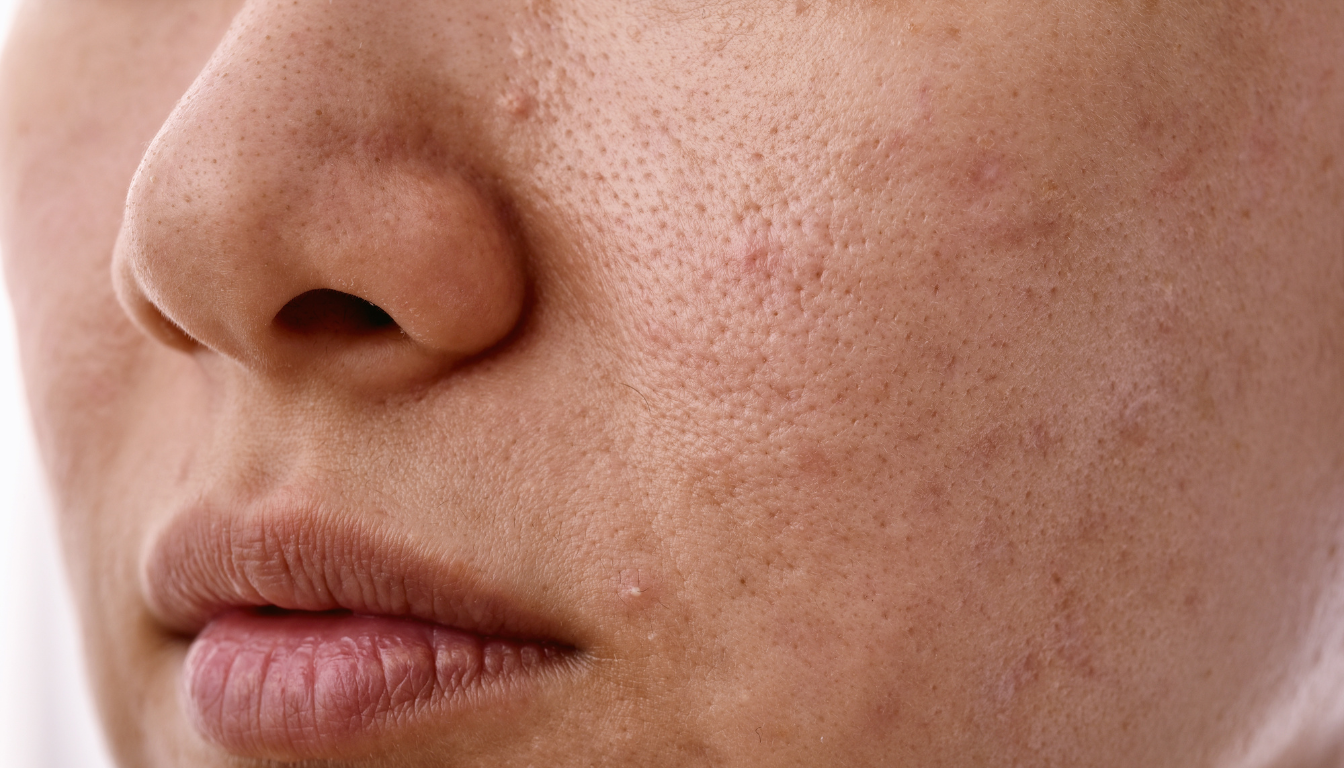


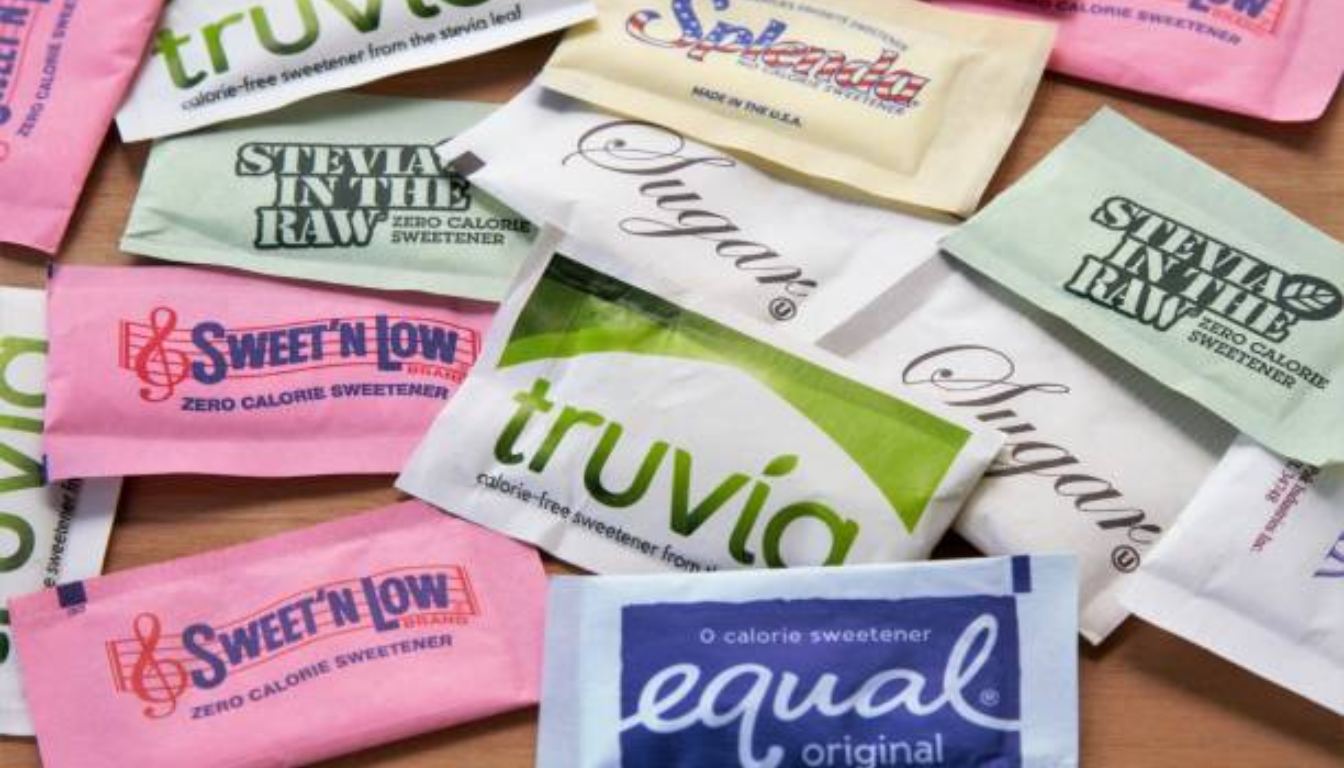






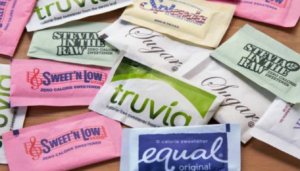



Post Comment